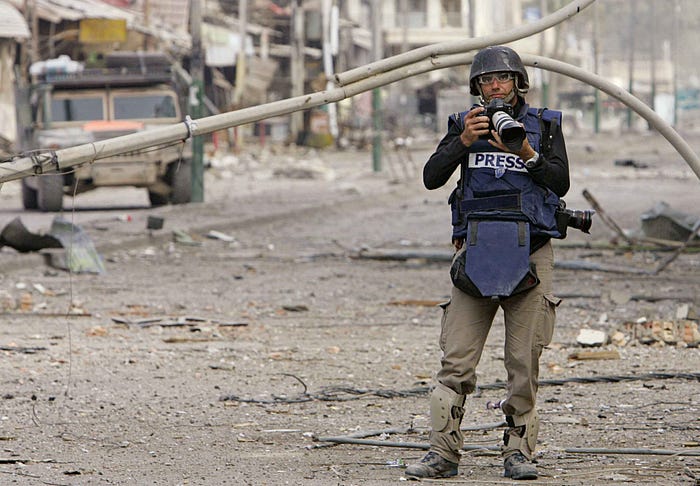PHOTOJOURNALIST PATRICK BAZ
“Photojournalism will not stop or lose its importance”

#PhotojournalismChat Series / Nezih Tavlas
Photojournalism News: What drew you to photojournalism?
Patrick Baz: I was 12 when civil war broke out in Lebanon in 1975 Living not far from the demarcation line separating the Christian and Muslim zones I was stimulated by what was going on around me to take up photography at an early age. Lebanon became my training ground.
Photojournalism News: What equipment do you use? Do you have a favourite lens/camera?
Patrick Baz: I believe that photography is not about a sophisticated equipment but about what your eyes perceives. I always say to photography students “show me what my eye doesn’t see”. A smart phone or a “smart camera” as I call it, is a must when you are facing the unexpected as for the bag it’s always ready with two cameras a 70x200 and a 24/70 lens
Photojournalism News: What social media platforms do you use?
Patrick Baz: Instagram I think it’s a great platform to discover the work of amateur and professional photographers and Linkedin for a more professional approach
Photojournalism News: How do you prepare yourself before any assignment? What would you put in your camera bag for a typical task?
Patrick Baz: By documenting myself about the story I am going to cover. The politics, the people, the history etc
Photojournalism News: How would you best describe your style of work? What are you trying to say with your photography?
Patrick Baz: I would say that I am a field photographer, I don’t know how to stage a picture or wait for a model to strike a pose, the image presents itself and I need to catch it immediately
Photojournalism News: How many photos do you take for one story?
Patrick Baz: I come from a school where one photo was good enough. There was no room in the newspapers for more…I am glad that today’s technology allows us to show more. Sometimes too many photos can kill the photo.
Photojournalism News: What is the last trip you made?
Patrick Baz: It was last October working for the Gouna International Film Festival.
Photojournalism News: What projects will you be working on next?
Patrick Baz: Hopefully not the upcoming economic and social collapse of my country.
Photojournalism News: Which of your photographs would you describe as your favourite? What makes them so special to you?
Patrick Baz: I don’t have a favourite photo. I have stories and memories.
Photojournalism News: What message do you want your photos to convey?
Patrick Baz: It is more about showing the facts than conveying a message.












Photojournalism News: What does a photo need to be a great in your eyes?
Patrick Baz: I will quote Eddie Adams “If it makes you laugh, if it makes you cry, if it rips out your heart, that’s a good picture.”
Photojournalism News: In the digital age people consume billions of photos every single day, under the circumstances what could make a photo memorable?
Patrick Baz: A 2015 research at MIT by neuroscientists showed that most memorable photos are those that contain people, followed by static indoor scenes and human-scale objects. And apparently landscapes may be beautiful, but they are, in most cases, utterly forgettable.
Photojournalism News: What motivates you to continue taking pictures and what do you do to keep motivated?
Patrick Baz: I don’t really need a motivation to continue taking pictures, it’s part of who I am.
Photojournalism News: What was the biggest professional risk you have taken and what was the outcome?
Patrick Baz: I risked my life for more than 30 years, conflicts, wars and death were part of my daily life, so the outcome was definitely a Post-Traumatic Stress Disorder (PTSD)
Photojournalism News: What would be your dream assignment?
Patrick Baz: I would love to do some underwater photography with whales, I guess it will stay a dream.
Photojournalism News: What are the essential skills/ qualities a photojournalist should have?
Patrick Baz: General culture, visual culture, and great story telling capacities.
Photojournalism News: What do you think about the digital manipulation of images?
Patrick Baz: We can also talk about “field manipulation” or “set up” which is as much damaging to the profession as the digital one but we do not have tools to spot it. It is fake news
Photojournalism News: What does it mean to be an ethical photojournalist?
Patrick Baz: Ethics vary from one country to another. It means we have to be respectful of our subjects, of our audience and the environment/culture we are working in. What seems or might be ethical in LA might not be in Baghdad. It is cultural.
Photojournalism News: How do you see the role of photojournalism evolving in the world? Do you think photojournalism is losing its importance?
Patrick Baz: Photojournalism will not stop or lose its importance. The best example is the invasion of the capitol. The most striking pix were produced by photojournalists. The evolution is another issue. We’ll probably see one day Photo Drones deployed on the ground.
Photojournalism News: Do you have any advice for aspiring photojournalists?
Patrick Baz: You want to be published be different, look for a story that has never been covered before and most of the time the story is across your street.
